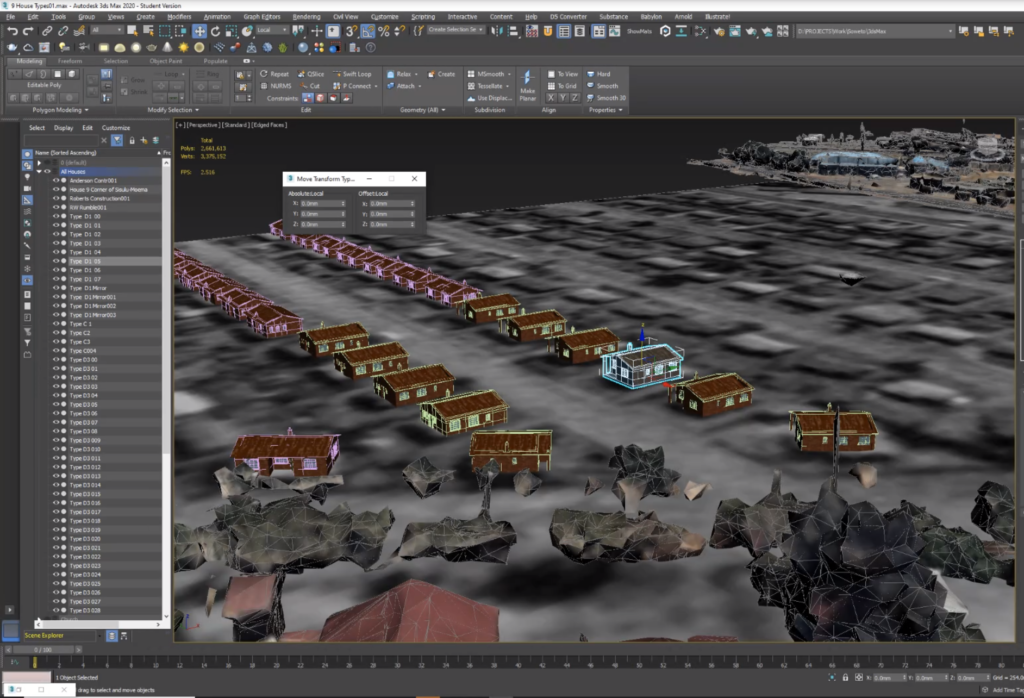Angel Nieves is a Professor of Africana Studies, History, and Digital Humanities and the Director of Public Humanities. At NU he is a key figure in interdisciplinary studies with scholarship supported by his diverse academic background. Across CSSH Nieves is spearheading programs as he draws upon his experience as an architect and public historian to implement new research and new opportunities for NU students.
Nieves is proud of the steps that Northeastern has been taking in terms of diversity, inclusion, and equity. As the Director of Public Humanities, he is working to establish a Spatial Justice University Research Cluster with Liza Weinstein and Simon Rabinovitch. In all these endeavors, Nieves finds that social justice and his experience as an architect has guided both his interests and methods.
As an architect I see almost everything as a solvable problem. I see the opportunities and the big picture of what programs for research and teaching can do.

3D historical reconstruction model of Soweto, Johannesburg (ca. 1976.) for the Apartheid Heritage(s) digital book project (Nieves & Buckley, 2020).
For the last fifteen years, Nieves has been working on a 3-D historical reconstruction of the township of Soweto, South Africa across four different historical moments in its difficult history. He tells the story of Stompie Seipei. Seipei was a young South African activist from the 1980s whose death is believed to have been perpetrated by the Mandela United Football Club. In South Africa, Nieves attempts to understand the complicated relationship between victim and perpetrators. He works to recover the South African LGTBQ community’s many contributions to ending apartheid that remain silenced. As in much of the world, the invasion of sub-Saharan Africa by Western powers left lasting and complex effects on sexual and gender norms. South African policy under apartheid adopted a colonial approach to Black sexuality, leaving hate crimes like those against Seipei irrevocably tied to colonial history.
Professor Nieves has recently been a panelist in NU’s Racial Literacy Pop-Up, where he spoke about the impact of identity, language, and class. To learn more about Nieves’ work, much of his research is discussed in greater depth on his website, apartheidheritages.com.
In the United States, Boston has a rich history of resistance – exemplified by those institutions created by African American women abolitionists though public perception tends to focus on Boston’s Revolutionary history: “It goes beyond Revolutionary history,” he explained in an interview, “Even though we broke from a monarchy, we still perpetuate a settler-colonial history that fails to interrogate the long history of racism in this country.”
NU’s History department is interesting in that it’s not your typical large top-down history department, instead there’s a critical focus on global history and public history. Social justice is at the core of what the department is doing and how we are making things happen through more complex historical storytelling.




